Your cart is currently empty!
Are You Ready to Embrace Uncertainty?
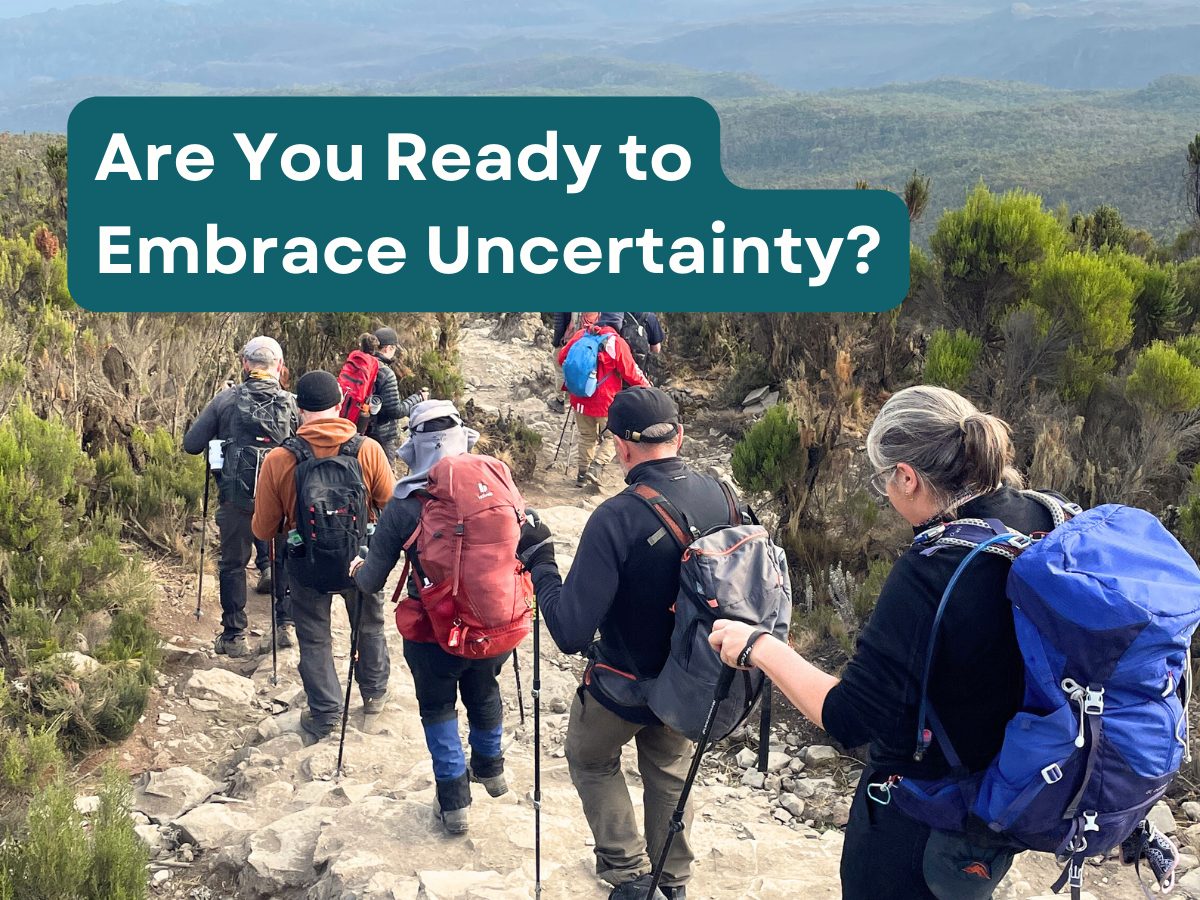
If you’ve joined us before, you know that adventure throws us into situations where we often don’t know what’s coming next. In these moments, we’re faced with a choice: cling to a plan that may not be working, or be adaptable to a new approach. As positive psychology establishes, embracing uncertainty builds resilience, which is the ability to bounce back and adapt to challenges. It is essential for well-being. When we trust in our ability to navigate the unknown, we gain a mindset that sees challenges as opportunities, not threats. These skills then transfer from outdoor adventures directly into our lives. The more we practice adapting, the more resilient we become in our careers, relationships, and personal growth.
Seeing opportunity in challenge
Adventure often means encountering obstacles that could be literal obstacles like a fallen tree blocking your path or unsafe weather conditions, or more abstract obstacles like losing confidence in yourself. These are part of what makes the experience unique and memorable, but they also challenge us to think on our feet and develop what psychologist Carol Dweck calls a growth mindset. With a growth mindset, we view challenges not as insurmountable roadblocks, but as opportunities to learn and grow.
In the field of positive psychology, this mindset is linked to increased optimism, self-efficacy, and belief in our own ability to succeed. When we learn to see obstacles as stepping stones rather than barriers, we reinforce the belief that we’re capable of finding solutions and adapting when plans change. This perspective is especially valuable in today’s ever-changing world, where flexibility and creative problem-solving are increasingly important for personal and professional success.
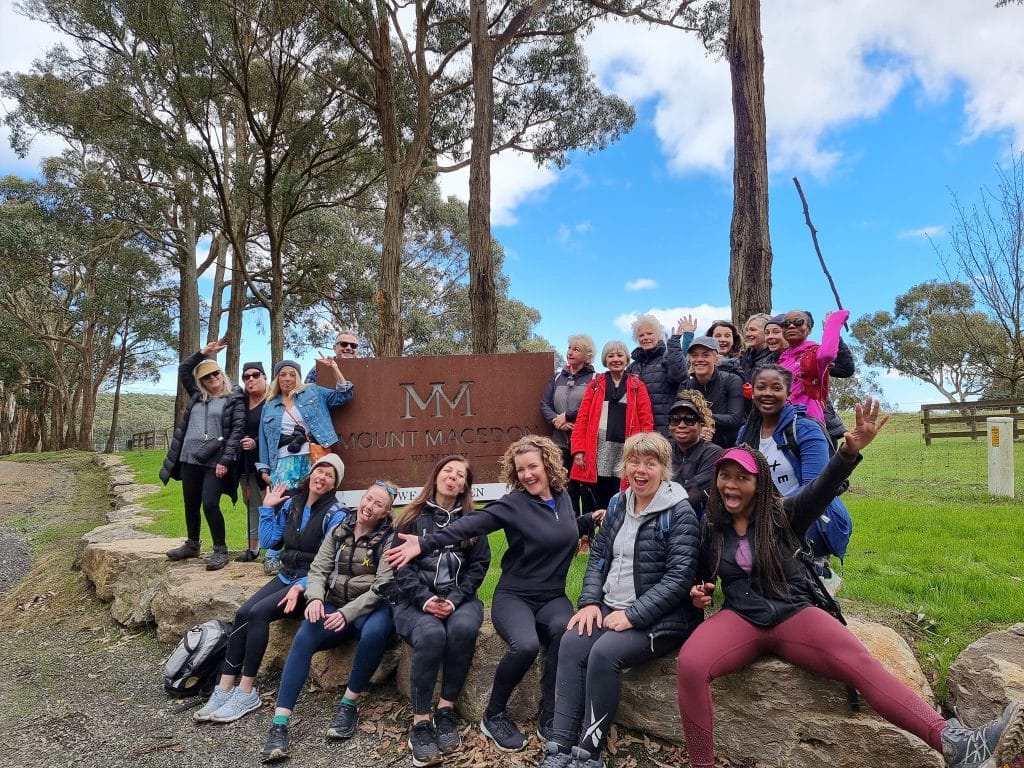

Being present through challenges
Adventure teaches us to be present since we often have to focus carefully on what’s happening right in front of us. Where are we placing our next step? Which way is the right way to go to not get lost? Or maybe we’re just admiring a stunning view in front of us and can’t think about anything else! Out in nature, we’re naturally drawn to focus on the present moment and the task at hand. This presence fosters mindfulness, which is the practice of staying fully engaged with what we’re experiencing in the here and now.
Mindfulness is a core principle of positive psychology, as it enhances our well-being and helps us respond thoughtfully to challenges rather than react impulsively. When we’re mindful, we’re better equipped to observe changes, remain calm, and make deliberate choices that reflect our values and goals. In an adventure setting, being present enables us to respond calmly to whatever nature throws our way and, in life, mindfulness allows us to remain grounded and adaptable during stressful or unpredictable times.
Start believing in yourself
Adventure empowers us to take risks – some small, some large, all meaningful – that build our confidence. Every time we face a fear, overcome a new challenge, or make our way through a barrier, we gain a sense of accomplishment and pride in our abilities. This sense of achievement strengthens our self-efficacy, which is our belief in our ability to handle what comes our way.
Self-efficacy is essential for adaptability because it gives us the confidence to take on new challenges and learn from them. As we gain experiences where we’ve successfully adapted to a certain barrier, we begin to trust in our capacity to handle change. This confidence carries over into all areas of life, making us more willing to embrace new roles, set ambitious goals, and make changes that support our growth and happiness.
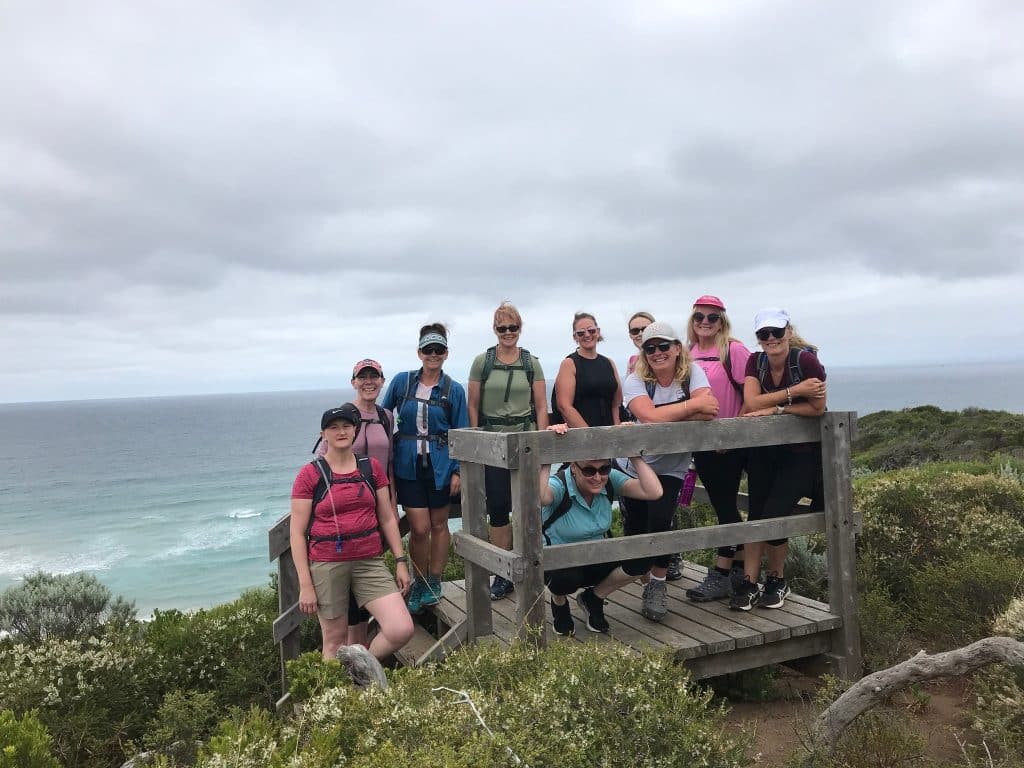
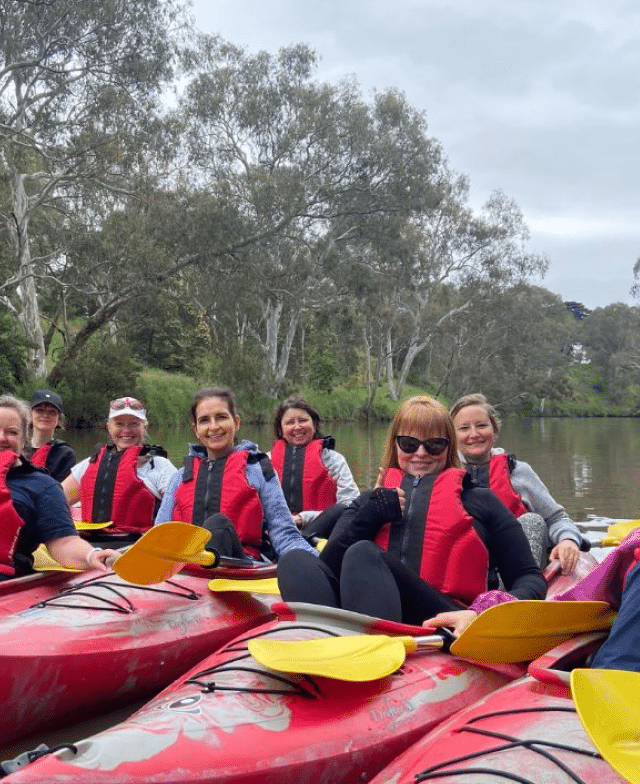
Why else does adaptability matter?
Positive psychology has found that well-being goes beyond avoiding stress and encourages people to build a life that feels meaningful, fulfilling, and aligned with our values. Adaptability is key to this process because it enables us to engage with life’s uncertainties and continuously grow. Some more reasons why adaptability is so important include…
It reduces anxiety around change. When we know we can adapt, change becomes less daunting. Rather than fearing the unknown, we see it as something we can explore and learn from.
It can strengthen our relationships. The benefits of adaptability certainly help us personally, but they also help us be better partners, friends, and colleagues. When we’re adaptable, we’re more willing to compromise, more understanding of others’ needs, and better able to collaborate effectively.
It enhances our personal growth. Life is full of ups and downs, and adaptability allows us to take those fluctuations in stride, using each experience as an opportunity to learn and grow. Without adaptability and the resulting personal growth, it’s easy to become static, intolerant, and anxious.
It supports long-term satisfaction. In a world that’s constantly changing, those who can adapt are best positioned to succeed and find satisfaction. When we can see change as a natural part of life, we’re more likely to pursue what brings us fulfillment and joy.
The day-to-day adventure mindset
So how can we take what we learn from adventure and apply it to our daily lives, especially when they can seem unrelated? Here are a few small, powerful ways to use the principles of an adventure mindset in day-to-day life:
Try new things regularly. Make a habit of trying new experiences, even small ones. The more you practice embracing novelty, the more comfortable you’ll become with change.
Reframe challenges as opportunities. When you encounter a problem, don’t do whatever you can to avoid it. Instead, ask yourself, “What can I learn from this?” This small shift in perspective can make a big difference in how you respond.
Collect resilience tools. Practice mindfulness, gratitude, and positive self-talk, which are all helpful for staying adaptable in the face of challenges in life. Again, it doesn’t mean constant happiness, just the ability to return to a positive state.
Focus on what you can control. Embrace the aspects of change you can influence and let go of what you can’t. This allows you to use your energy where it counts.
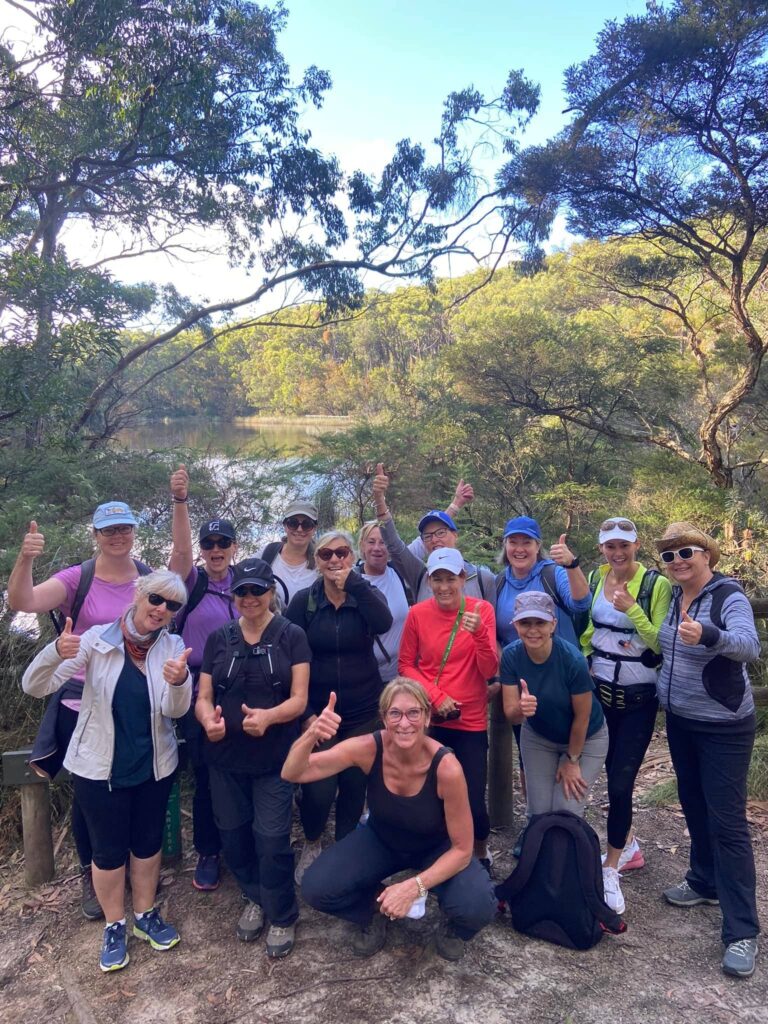
Adventure shows us that, while we can’t control everything that happens to us, we can control how we respond. Through this, we gain a greater sense of agency, resilience, and confidence, giving us a mindset that prepares us for life and helps us embrace change. Instead of avoiding discomfort or change, let’s learn to thrive through them, seeing each shift as a chance to grow stronger and wiser. Come along for an adventure with us to open your mind, ready to learn, grow, and adapt.

